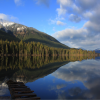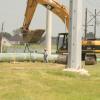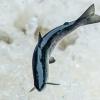On April 4, 2016 the Gitanyow Hereditary Chiefs filed an amended Notice of Civil Claim in the BC Supreme Court seeking judicial recognition of their title to 6,200 square kilometres of the mid-Nass River and Kitwanga River watersheds in northwestern British Columbia.
Environmental Law Alert Blog
Through our Environmental Law Alert blog, West Coast keeps you up to date on the latest developments and issues in environmental law. This includes:
- proposed changes to the law that will weaken, or strengthen, environmental protection;
- stories and situations where existing environmental laws are failing to protect the environment; and
- emerging legal strategies that could be used to protect our environment.
If you have an environmental story that we should hear about, please e-mail Andrew Gage. We welcome your comments on any of the posts to this blog – but please keep in mind our policies on comments.
According to pipeline supporters and cheerleaders, one of the primary rationales for building pipelines to tidewater – Canada’s east or west coast – is to maximize the price that Canadians can get for tar sands oil by reaching world markets. It has been repeated so many times that it has become something of dilbit dogma.
To the Canadian government: Consider all greenhouse gas emissions from oil and gas projects
Fish matter to Canadians. Fish habitat, called the “bedrock” of fisheries by Fisheries and Oceans Canada (DFO), matters. And so the law to protect fish and their habitat reallymatters.
The headlines were enough to make you wonder if you’d stepped into an alternate universe: a mining corporation suing the Crown for transferring land interests to First Nations without adequate consultation.
Last November, in a federally-unprecedented move, Prime Minister Trudeau made public his mandate letters to Canada’s new Cabinet.
Good news and bad news on the environmental enforcement front from a recent BC government announcement on improving tools for Mines Act enforcement.
It’s amazing how invisible climate change can be – how we feel immune from the consequences of what seems like a vague, global challenge. We think that climate change only occurs in far off climate-vulnerable nations.
The empty NEB hearing room was a stark contrast to the public protesting outside. Photos by Eugene Kung.
A crowd of over 300 community members, First Nations leaders, scientists, politicians, commercial and sport fishermen, and other concerned citizens gathered at the Salmon Nation Summit in Prince Rupert in January to talk wild salmon, liquefied natural gas (LNG), and ocean protection. The Summit ended with the signing of the










